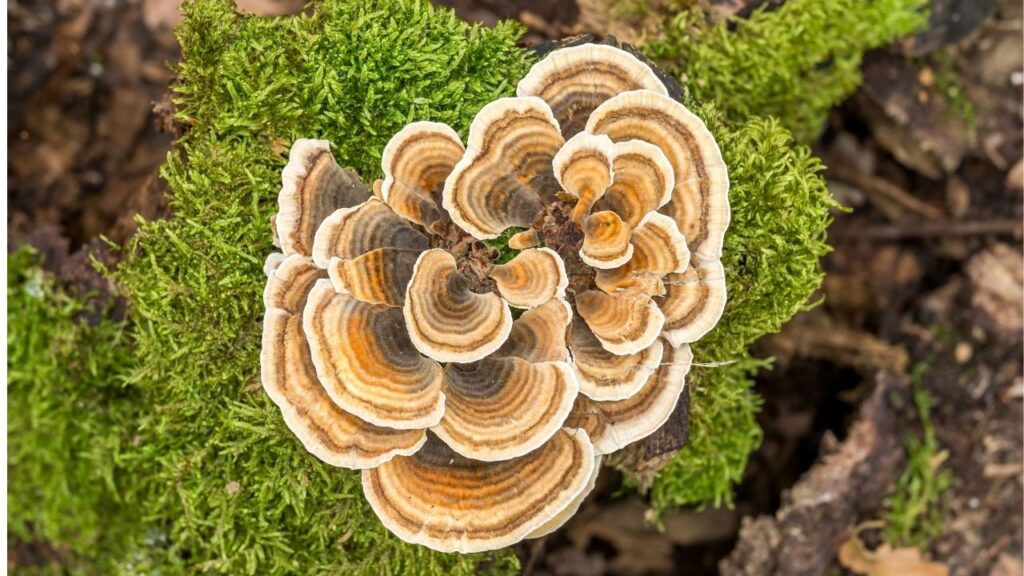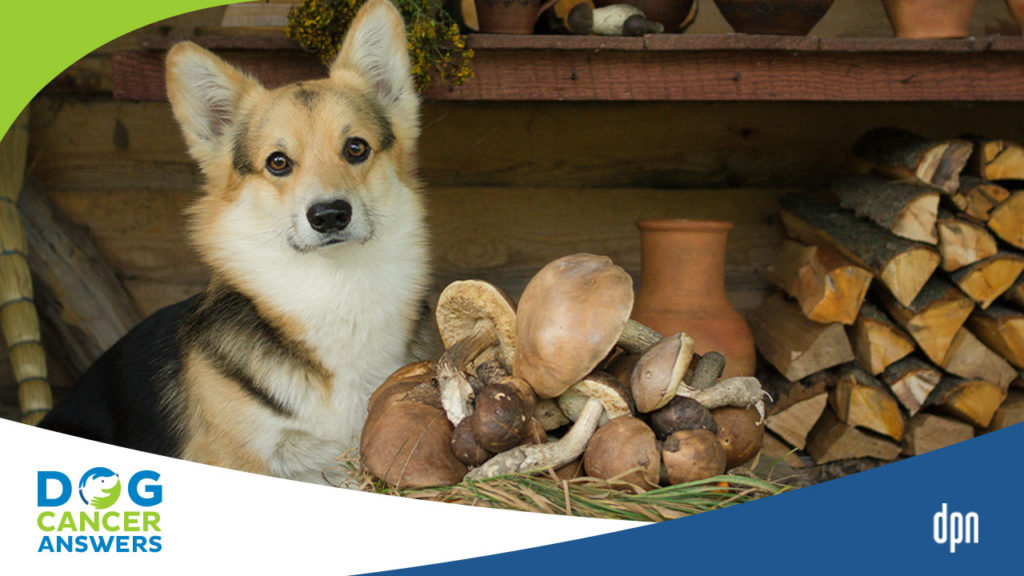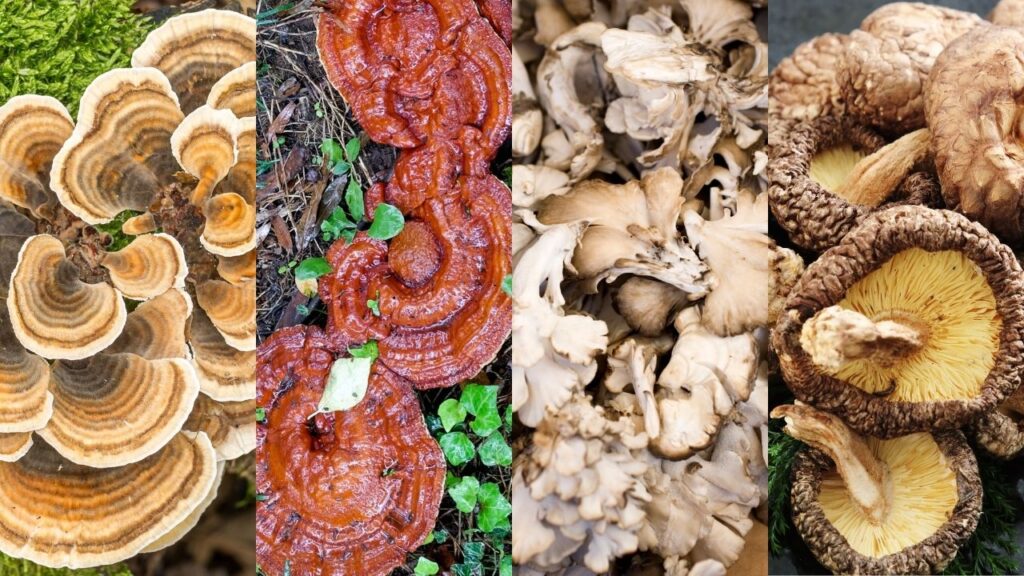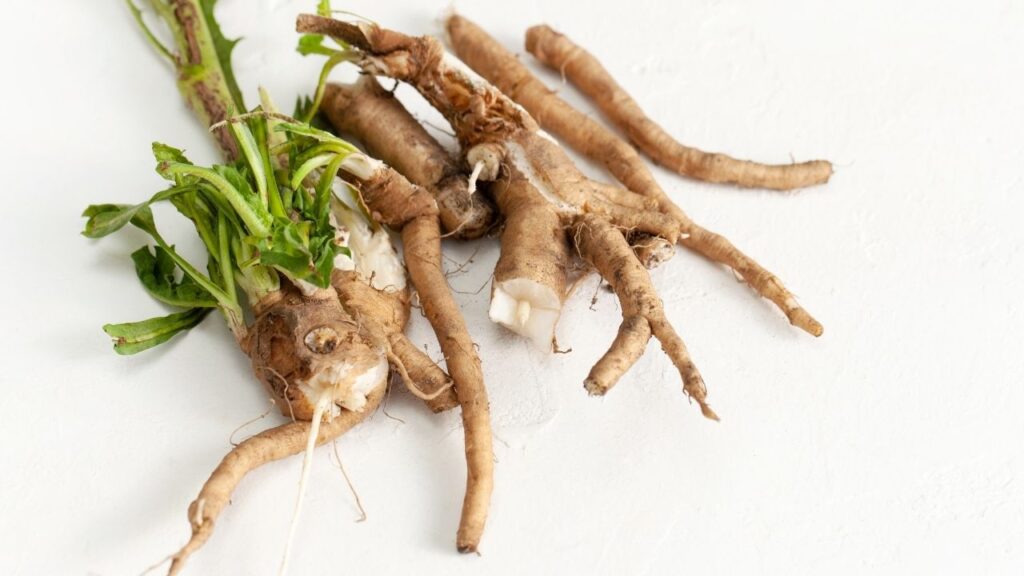This unique group of mushrooms may support your dog’s immune system and protect her organ function during cancer treatment.
Key Takeaways
- Dogs can eat Cordyceps mushrooms, but usually a powdered supplement product is most accessible.
- Benefits of cordyceps mushrooms for dogs include immune system support and possibly encouraging natural cell death of cancer cells.
Cordyceps for Dogs: Strange Fungi
Cordyceps is a genus of fungi including over 400 species.1 These species are distributed worldwide, but most originate from Asia. Cordyceps are part of the phylum Ascomycete, often called the sac fungi for the microscopic structure where their spores are formed. Veterinarians may use cordyceps for dogs with cancer as an immune booster and for organ support.
Most Cordyceps species are parasitic; some use caterpillars or other arthropods as a nutrient source.
Cordyceps species have been used heavily in Traditional Chinese Medicine as a dietary supplement. Commonly used species include:2
- Cordyceps sinensis (renamed Ophiocordyceps sinensis in 2007 after being placed in a new taxonomical family)
- Cordyceps militaris
- Cordyceps capitata
Use of naturally growing Cordyceps fungi today is rare because their natural habitat is often at very high altitudes and difficult to access. Instead, Cordyceps species are cultured in laboratory conditions, and Cordyceps supplements are available as capsules, powders, and extracts.
Bioactive Components of Cordyceps
Some bioactive components found in Cordyceps fungi that are of interest to researchers include cordycepin, polysaccharides, and ergosterol.2
Cordycepin
Cordycepin is considered by many researchers to be the most important anti-cancer component of Cordyceps fungi.2
Research suggests cordycepin’s anti-tumor effects include inhibiting blood supply to tumors, stopping metastasis of cancer, as well as inducing apoptosis of cancer cells, or directly causing cell death of tumor cells. Cordycepin appears to stop the cell cycle in cancer cells and to target cancer stem cells, cells thought to resist chemotherapy and that may give rise to highly metastatic cancer cells.4
In one study, cordycepin given daily by mouth for two weeks stopped the growth of melanoma cells in mice.3
Polysaccharides
The bioactive polysaccharides (structures made of bonded sugar molecules) present in Cordyceps mushrooms have demonstrated evidence for anti-inflammatory, anti-oxidant, anti-tumor, anti-metastatic, and immune boosting effects. Some researchers question whether there is enough evidence to support the anti-tumor properties of these compounds, and more research is needed to understand their specific effects on cells.2
Many mushroom species contain bioactive polysaccharides that may help support immune function in dogs with cancer, including turkey tail (Coriolus versicolor), Agaricus blazei, maitake (Grifola frondosa), Phellinus linteus, and shiitake (Lentinula edodes).
Ergosterol
Cordyceps species also contain a cholesterol-like compound unique to fungi and protozoa called ergosterol. Ergosterol is thought to have antimicrobial and antiviral properties, and ergosterol extracted from the mushroom Amauroderma rude demonstrated anticancer properties in a study using mice and human breast cancer cells. The evidence from this study suggests that ergosterol can induce cancer cell death and upregulates a tumor suppressor compound in the body.5
Cordyceps for Dogs with Cancer
Research suggests that cordyceps supplements have immune-boosting effects. There is evidence that cordyceps products stimulate helper T cells, one of the body’s main types of immune cells, and that they prolong the survival of lymphocytes, a type of white blood cell that helps kill tumor cells, viruses, and bacteria.
Cordyceps supplements increase levels of pro-inflammatory messengers in the body needed for the activation of the immune system. They also increase the activity of Natural Killer cells (NK cells), cells that kill cancer cells or cells infected with a virus.6
Most of the information that we currently have on Cordyceps and cancer is anecdotal or from in vitro studies. Limited work has been done in humans, but we still have a long way to go to fully understand how this mushroom can impact dogs with cancer.
Laboratory Studies
Preclinical studies using Cordyceps supplements have shown:7,8,9
- Anti-tumor effects
- Protection against side effects of radiation
- Prevention of abnormal clotting in blood vessels
- Protection against some chemotherapy drug side effects while enhancing the effectiveness of chemotherapy on cancer cells
- Improved recovery time to normal white blood cell counts for mice with low white blood cell counts after treatment with the chemotherapy drug Taxol
- Boosted the effectiveness of the chemotherapy drug cisplatin to inhibit tumor growth in non-small cell lung cancer cells
Researchers believe Cordyceps products may protect the bone marrow stem cells and immature blood cells directly.8
As is often true for interesting supplements, more research is needed to fully confirm many of the effects of cordyceps for dogs and for humans.
Studies in Humans
In some human clinical studies, Cordyceps supplements appeared to help improve kidney function in kidney transplant patients and in diabetic patients with kidney disease.7 This suggests that Cordyceps might be helpful to protect kidney function during chemotherapy, but this theory has not yet been tested or proven.
Common Uses of Cordyceps
- Anti-tumor
- Anti-inflammatory
- Antioxidant
- Anti-metastatic
- Immune support
- Improve tolerance to chemotherapy and radiation treatments
- Kidney disease
Safety and Side Effects
Several side effects have been reported in humans taking Cordyceps supplements:11
- Dry mouth
- Headache
- Nausea
- Diarrhea
- Allergic reactions
Cordyceps supplements are not recommended if your dog has a known mold, yeast, or fungi allergy.11
Choose the source of your supplements carefully. Herbal medicine products, including Cordyceps supplements, can be contaminated with toxic amounts of metals, including arsenic, lead, cadmium, and mercury.12
Using Cordyceps with Other Treatments
Cordyceps supplements can be used safely with chemotherapy and radiation.13,8
Check with your veterinarian before using Cordyceps products in combination with other medications and supplements, as they may interfere with each other or cause unexpected reactions.
When to Not Use Cordyceps for Dogs
Cordyceps supplements are not recommended in the following situations:
- Dogs on blood thinners or anti-platelet/clotting medications
- Within two weeks of surgery
- Dogs with chronic myeloid leukemia (CML)7
- Dogs with autoimmune diseases
- Diabetic dogs
Cordyceps supplements may increase the adverse effects of blood thinners or anti-platelet drugs and are not recommended when using these medications.7 Blood thinning medications include clopidogrel, heparin, and warfarin. This increased risk of bleeding is also why you should stop giving your dog Cordyceps two weeks before surgery.14
Cordyceps supplements are not recommended for dogs with auto-immune diseases because they may worsen symptoms. In human medicine, patients with systemic lupus erythematosus, multiple sclerosis, and rheumatoid arthritis are advised to avoid this supplement.11 If your dog is on immunosuppressant medications like prednisone, prednisolone, or cyclosporine, Cordyceps supplements are not recommended.14
In diabetic patients on insulin, mushroom-derived polysaccharides can lower blood sugar levels. You and your veterinarian may need to closely monitor blood glucose values and clinical signs in dogs with diabetes taking mushroom supplements, as an accidental overdose of insulin can lead to a medical emergency if left untreated.15
How to Give Cordyceps
Cordyceps CS-4 is the most common strain used in supplement products. Cordyceps supplements are usually dried and come in capsules, and they can be purchased at health food stores or online.
The contents of capsules can be sprinkled over food or treats to administer. Be sure to buy from a reputable supplier and to check for purity and fillers on the product label.
Cordyceps for Dogs Dosage
We recommend giving dogs 150-300mg per pound of body weight every 8-12 hours.
What If I Miss a Dose?
Give the next dose as soon as you remember, then wait the recommended time until the next dose. Missing a dose is not likely to have significant effects.
Storage and Handling
Store mushroom-derived products in a cool, dry place away from light, and refer to the product packaging for specific instructions.
Our Take on Cordyceps for Dogs with Cancer
There is evidence for the efficacy of Cordyceps mushroom-derived products for cancer treatment, and we’re looking forward to further studies in dogs! When prioritizing nutraceuticals, mushroom-derived polysaccharides are generally recommended, however, we do not recommend using Cordyceps products prior to surgery or in dogs with chronic myeloid leukemia or immune disease.
When used appropriately with the guidance of your veterinary team, Cordyceps supplements may enhance your dog’s treatment plan.
- Sung GH, Hywel-Jones NL, Sung JM, Luangsa-Ard JJ, Shrestha B, Spatafora JW. Phylogenetic classification of Cordyceps and the clavicipitaceous fungi. Stud Mycol. 2007;57:5-59. doi:10.3114/sim.2007.57.01
- Paterson RRM. Cordyceps – A traditional Chinese medicine and another fungal therapeutic biofactory? Phytochemistry. 2008;69(7):1469-1495. doi:10.1016/j.phytochem.2008.01.027
- Yoshikawa N, Nakamura K, Yamaguchi Y, Kagota S, Shinozuka K, Kunitomo M. Antitumour activity of cordycepin in mice. Clin Exp Pharmacol Physiol. 2004;31 Suppl 2:S51-S53. doi:10.1111/j.1440-1681.2004.04108.x
- Anti-tumor and anti-metastatic roles of cordycepin, one bioactive compound of Cordyceps militaris. Saudi Journal of Biological Sciences. 2018;25(5):991-995. doi:10.1016/j.sjbs.2018.05.016
- Li X, Wu Q, Xie Y, et al. Ergosterol purified from medicinal mushroom Amauroderma rude inhibits cancer growth in vitro and in vivo by up-regulating multiple tumor suppressors. Oncotarget. 2015;6(19):17832-17846. doi:10.18632/oncotarget.4026
- Zhu JS, Halpern GM, Jones K. The scientific rediscovery of a precious ancient Chinese herbal regimen: Cordyceps sinensis: part II. J Altern Complement Med. 1998;4(4):429-457. doi:10.1089/acm.1998.4.429
- Cordyceps | Memorial Sloan Kettering Cancer Center. www.mskcc.org. Accessed January 30, 2023. https://www.mskcc.org/cancer-care/integrative-medicine/herbs/cordyceps#references-19
- Liu WC, Chuang WL, Tsai ML, Hong JH, McBride WH, Chiang CS. Cordyceps sinensis health supplement enhances recovery from taxol-induced leukopenia. Exp Biol Med (Maywood). 2008;233(4):447-455. doi:10.3181/0708-RM-230
- Ji NF, Yao LS, Li Y, He W, Yi KS, Huang M. Polysaccharide of Cordyceps sinensis enhances cisplatin cytotoxicity in non-small cell lung cancer H157 cell line. Integr Cancer Ther. 2011;10(4):359-367. doi:10.1177/1534735410392573
- Xu F, Huang JB, Jiang L, Xu J, Mi J. Amelioration of cyclosporin nephrotoxicity by Cordyceps sinensis in kidney-transplanted recipients. Nephrol Dial Transplant. 1995;10(1):142-143.
- Ashraf SA, Elkhalifa AEO, Siddiqui AJ, et al. Cordycepin for Health and Wellbeing: A Potent Bioactive Metabolite of an Entomopathogenic Cordyceps Medicinal Fungus and Its Nutraceutical and Therapeutic Potential. Molecules. 2020;25(12):2735. Published 2020 Jun 12. doi:10.3390/molecules25122735
- Yang CM, Chien MY, Chao PC, Huang CM, Chen CH. Investigation of toxic heavy metals content and estimation of potential health risks in Chinese herbal medicine. Journal of Hazardous Materials. 2021;412:125142. doi:10.1016/j.jhazmat.2021.125142
- Lin CC, Pumsanguan W, Koo MMO, Huang HB, Lee MS. Radiation Protective Effects of Cordyceps sinensis in Blood Cells. Tzu Chi Medical Journal. 2007;19(4):226-232. doi:10.1016/s1016-3190(10)60020-1
- Cordyceps: Health Benefits, Uses, Side Effects, Dosage & Interactions. RxList. https://www.rxlist.com/cordyceps/supplements.htm
- Lo HC, Hsu TH, Tu ST, Lin KC. Anti-hyperglycemic Activity of Natural and Fermented Cordyceps sinensis in Rats with Diabetes Induced by Nicotinamide and Streptozotocin. The American Journal of Chinese Medicine. 2006;34(05):819-832. doi:10.1142/s0192415x06004314
- Kamal Patel MPH. Cordyceps Research Analysis. examinecom. Published online September 28, 2022. Accessed January 30, 2023. https://examine.com/supplements/cordyceps/#examine-database
Topics
Did You Find This Helpful? Share It with Your Pack!
Use the buttons to share what you learned on social media, download a PDF, print this out, or email it to your veterinarian.






